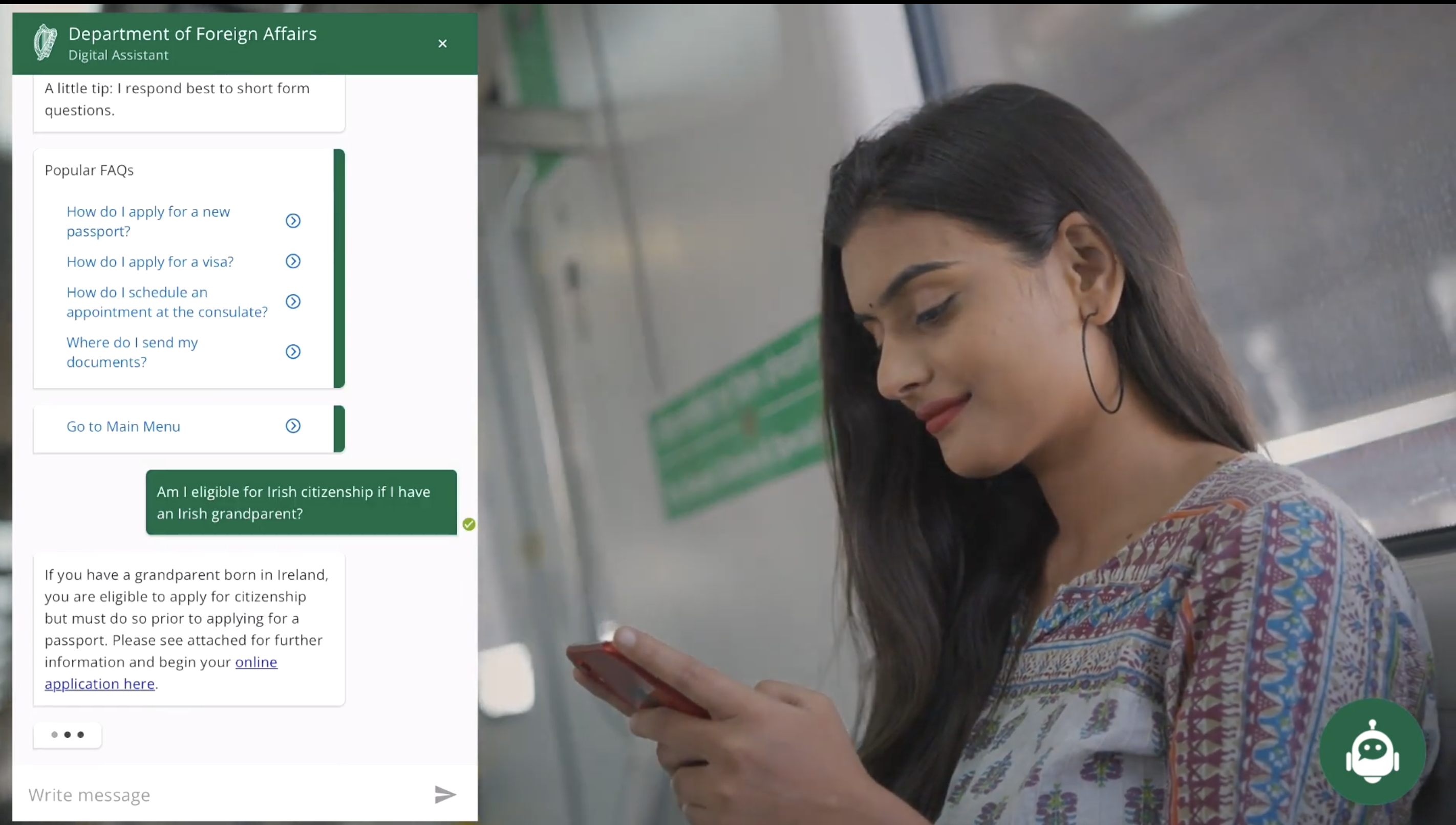Updated Covid-19 and PCR testing information
Announcement
27 February 2021Travelling to Ireland from the US West Coast during the Covid-19 pandemic
Please note there is a Government Advisory in operation against all non-essential international travel.
Before you arrive
Pre-Departure Testing Requirements for all passengers traveling to Ireland
Effective 16 January 2021, all passengers arriving to Ireland are required to have a negative or ‘not detected’ result from a pre-departure Covid-19 PCR test that was carried out no more than 72 hours prior to arrival in Ireland.
This is a mandatory requirement.
Passengers will be asked to present evidence of their ‘negative/not detected’ result before boarding and will be denied boarding if they cannot produce such evidence. Passengers without proof or evidence of a ‘negative/not detected’ test result may be subject to prosecution, punishable by a fine not exceeding €2,500 or imprisonment for up to 6 months.
PCR test requirements for children
Children aged six and under are exempt from the testing requirement, although they are advised to restrict movement for 14 days. The responsible adult traveling with the children aged seven or older must ensure that those children have a negative/not detected test result.
For further details on inward travel to Ireland, including Covid-19-related requirements and the limited exemptions in place, please see www.gov.ie and the HSE website.
If a citizen has a genuine humanitarian emergency requiring urgent travel, and might not be able to obtain the result of a pre-departure RT-PCR test in time, they should contact their nearest Consulate immediately for advice and consular assistance before commencing their journey.
Travel within Ireland
Travel within the island of Ireland is subject to prevailing domestic public health restrictions as outlined on gov.ie. Incoming passengers should ensure that they are aware of, and comply with, all relevant public health restrictions that apply to the population in general.
From 4 February 2021, a legal requirement to quarantine has been introduced for all passengers arriving in Ireland. Only very limited categories of passengers can be exempt from this legal requirement.
Travel to Northern Ireland
Passengers travelling to Northern Ireland must ensure that they are familiar with the guidance and regulations in place, including the completion of a UK Passenger Locator Form.
Testing Locations for travel hubs within the Western United States
Below is non-exhaustive list of testing sites at or near international airports in the Western US. Please be advised that when booking you should confirm that you are receiving an RT-PCR test, as required for entry into Ireland. This test must be taken within 72 hours prior to arrival into Ireland, and must demonstrate a negative result.
California
San Francisco Covid-19 test locations: https://datasf.org/covid19-testing-locations/
SFO Airport Covid-19 test information: 101 Terminal Court, San Francisco Airport
- This is a drive through testing location and is located in the parking lot. Patients can stay in the safety of their vehicle
- $125 standard molecular NAAT (PCR or TMA) Covid-19 test
- $150 Rapid Covid-19 Antigen test
- $160 Covid-19 Antibody Test
- $175 Rapid Covid-19 Antigen + Flu Combo Test
- $299 Rapid Covid-19 Molecular NAAT Test
- $475 Rapid RT-PCR Covid-19 19 Test
Los Angeles Covid-19 test locations: https://covid19.lacounty.gov/testing/
LAX Airport Covid-19 test information: LAX airport, opposite Terminal 6
- This lab is located on the Lower/Arrivals level. Guests can access the facility by vehicle drop-off along the outer arrivals curb at Terminal 6, or by walking from any of the parking structures. For pedestrians coming from Terminals 1, 2 and 3 a shorter path to the testing site is possible along East Way, Theme Way and West Way.
- $125 standard molecular NAAT (PCR or TMA) COVID 19 test
- LAX also has satellite PCR testing sites at Terminal 2, and at the Tom Brady International Terminal. More information can be found here: https://www.flylax.com/travelsafely
San Diego Covid-19 test locations: https://www.sandiegocounty.gov/content/sdc/hhsa/programs/phs/community_epidemiology/dc/2019-nCoV/testing.html
Washington State
Seattle Covid-19 test locations: https://www.doh.wa.gov/Emergencies/COVID19/TestingforCOVID19/TestingLocations
Oregon
Portland Covid-19 test locations: https://govstatus.egov.com/or-oha-covid-19-testing
Advice on Restricting Movement
The EU 'traffic lights' approach to travel applies to countries in the EU/EEA.
Nearly all of Europe has a high incidence of COVID-19 and is in a high-risk category (orange/red). If you are coming from red or grey regions, or from outside the EU/EEA, you should restrict your movements for 14 days.
This applies to all people entering the State, even if you have no symptoms. If you are unsure which risk area you are traveling from, please check the ECDC website.
See above for specific requirements regarding travel from Great Britain, South Africa and South America.
Restricting your movements means staying home or in your accommodation, and avoiding contact with other people, including those in your household that are at particular risk should they contract COVID-19. You should wear a face covering, including while indoors, to protect them.
You can go outside to exercise by yourself as long as you keep 2 meters away from other people. You should not meet or socialize with people outside your immediate household.
The request to restrict your movement means:
- do not go to work, unless you work on your own and can completely avoid other people
- do not go to school or college
- do not use public transport
- do not have visitors at your home
- do not visit others, even if you usually care for them
- do not go to the shops or pharmacy unless it's absolutely necessary - where possible, order your groceries online or have some family or friends drop them off
- do not go to gatherings such as weddings or funerals - information is available on bereavement and grief during Covid-19 here.
- do not meet face-to-face with older people, anyone with a long-term medical condition or pregnant women
You can find out more about restricting your movements on the HSE website.





